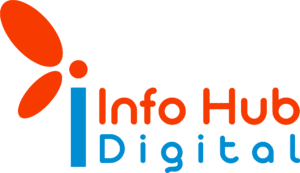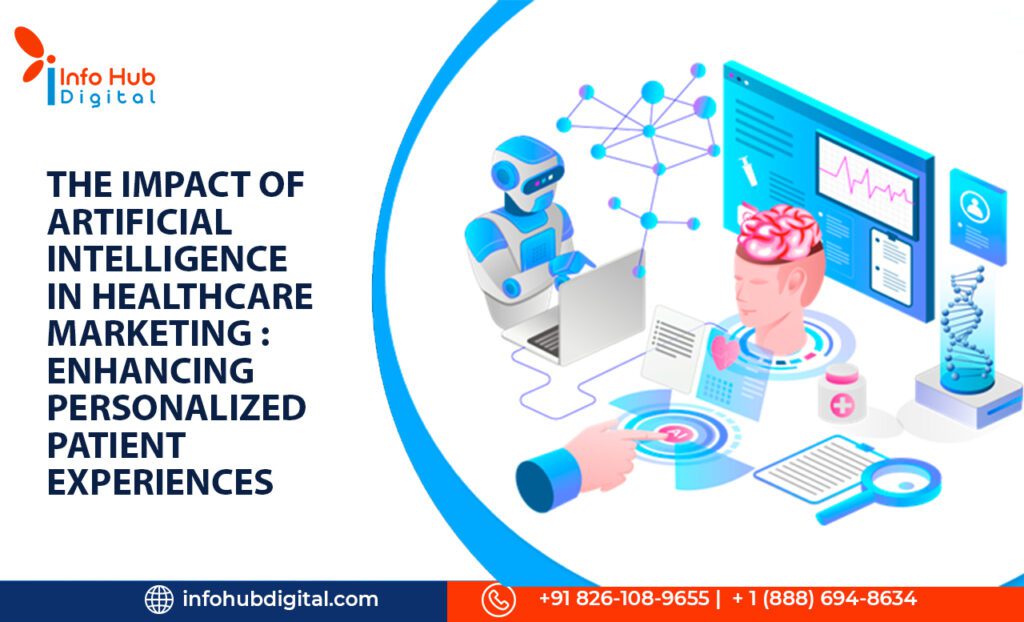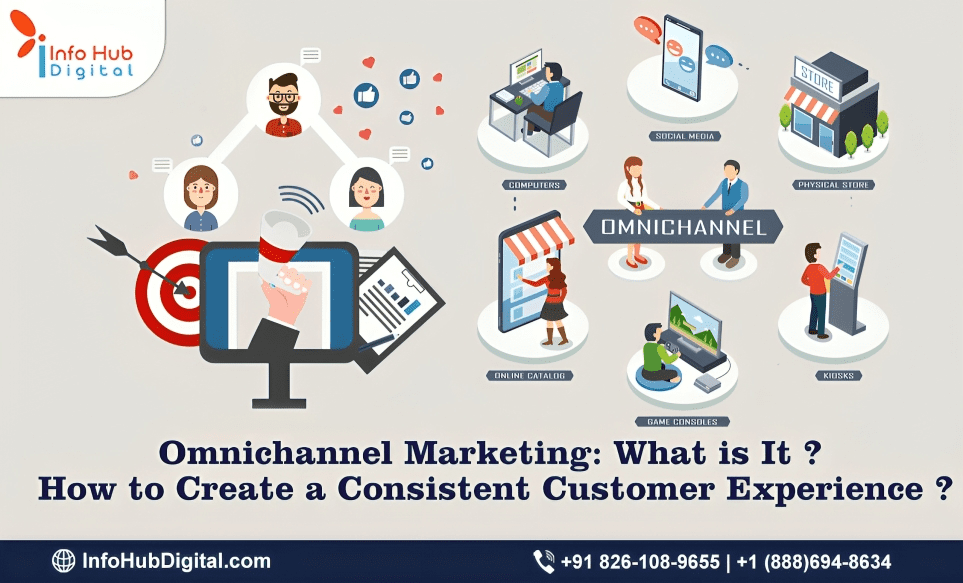Table of Contents
I. Introduction
A. Overview of Artificial Intelligence (AI) in Healthcare Marketing
The integration of artificial intelligence (AI) in healthcare marketing has revolutionized the way medical institutions and healthcare providers engage with patients. AI-driven technologies offer innovative solutions to improve patient experiences, optimize marketing efforts, and provide personalized care at scale.
B. Importance of Personalized Patient Experiences
Personalization lies at the heart of modern healthcare marketing strategies. Understanding patients’ unique needs, preferences, and expectations empowers medical professionals to tailor treatments, build stronger patient-provider relationships, and ultimately improve health outcomes.
C. Thesis Statement
This article explores the profound impact of artificial intelligence in healthcare marketing, focusing on how AI enhances personalized patient experiences and revolutionizes the way medical institutions connect with their target audiences.
II. AI Applications in Healthcare Marketing
A. AI-Powered Chatbots for Enhanced Patient Interaction
AI-driven chatbots have become an indispensable tool for healthcare providers to facilitate real-time communication with patients. These intelligent virtual assistants efficiently handle patient queries, offer appointment scheduling, provide relevant health information, and deliver personalized follow-up care. By automating routine tasks, medical staff can devote more time to high-value patient interactions.
B. Personalized Content Recommendations and Targeted Campaigns
AI algorithms analyze patient data, behavior, and preferences to deliver hyper-targeted content and marketing campaigns. Through data-driven insights, healthcare marketers can develop engaging content that resonates with specific patient segments, fostering a deeper sense of trust and loyalty.
C. Predictive Analytics for Tailored Health Communication
AI’s predictive analytics capabilities empower healthcare marketers to anticipate patient needs and preferences. By analyzing historical data and patterns, AI can predict future health behaviors, enabling personalized communication and tailored recommendations for preventive measures and wellness initiatives.
III. Improving Patient Engagement through AI
A. Sentiment Analysis for Understanding Patient Needs
AI-powered sentiment analysis tools evaluate patient feedback, reviews, and social media interactions to gauge their emotions and sentiments. This valuable information allows healthcare providers to comprehend patient concerns, identify areas for improvement, and adapt marketing strategies to address specific pain points.
B. AI-Driven Virtual Health Assistants for Remote Support
In an era of telemedicine and remote healthcare, AI-driven virtual health assistants offer patients continuous support and guidance. These intelligent companions can monitor patient vitals, provide medication reminders, and offer evidence-based health advice, promoting a more proactive and engaged approach to wellness.
C. Enhancing Patient Education with AI-Generated Content
AI-generated content plays a crucial role in educating patients about various health conditions, treatment options, and lifestyle choices. Healthcare marketers can leverage AI to create informative articles, videos, and interactive materials that empower patients to take charge of their health journey.
IV. Ethical Considerations and Data Privacy
A. Ensuring Patient Privacy and Data Protection
As AI in healthcare marketing relies heavily on patient data, it is essential to prioritize data privacy and security. Adhering to robust data protection standards and obtaining informed consent ensures patient information is handled responsibly and ethically.
B. Transparency in AI Algorithms and Decision-Making
Transparency in AI algorithms is critical to maintain patient trust. Healthcare marketers must clearly communicate how AI technologies operate, the data sources they use, and the basis for their decision-making processes.
C. Addressing Bias and Fairness Issues in AI
AI algorithms may inadvertently perpetuate biases present in historical data. Healthcare marketers must actively address bias and fairness concerns to ensure AI technologies deliver equitable and inclusive experiences to all patients.
V. Harnessing AI for Better Treatment Outcomes
A. AI-Enabled Diagnosis and Treatment Planning
AI-powered diagnostic tools can analyze medical images, patient data, and symptoms to assist healthcare professionals in accurate and timely diagnoses. This technology enables early detection of diseases, reduces diagnostic errors, and facilitates personalized treatment plans tailored to each patient’s unique health profile.
B. Precision Medicine and AI-Driven Therapies
Precision medicine, which focuses on individualized treatment based on genetic and molecular information, is greatly enhanced by AI. Machine learning algorithms analyze vast amounts of patient data, identifying specific genetic markers and biomarkers to guide personalized treatment decisions.
C. AI in Drug Discovery and Clinical Trials
AI’s ability to process large datasets and identify patterns at a rapid pace has significantly accelerated drug discovery and development. By streamlining the identification of potential drug candidates and optimizing clinical trial processes, AI holds the potential to revolutionize healthcare and bring novel treatments to market more efficiently.
VI. Future Possibilities and Challenges
A. Advancements in AI and Healthcare Marketing
The future of AI in healthcare marketing is promising, with ongoing advancements expected to further personalize patient experiences. Improved natural language processing, enhanced deep learning algorithms, and increased integration with wearables and IoT devices will shape the healthcare landscape of tomorrow.
B. The Need for Continuous Monitoring and Regulation
As AI becomes increasingly integral to healthcare marketing, it is essential to establish robust monitoring and regulatory frameworks. Continuously evaluating AI applications, identifying potential risks, and maintaining ethical standards will safeguard patients’ interests and maintain the credibility of AI-driven healthcare practices.
C. Embracing Collaboration between AI and Healthcare Professionals
The successful integration of AI in healthcare marketing requires collaboration and partnership between AI developers, healthcare professionals, and marketing experts. By combining domain expertise and technological innovation, this collaboration can create transformative solutions that deliver personalized patient experiences with a human touch.
Conclusion:
At Info Hub Digital, we take pride in being a leading digital marketing services provider in India and USA. Our cutting-edge AI-driven solutions have redefined personalized patient experiences for healthcare professionals. Through AI-powered chatbots, targeted campaigns, and predictive analytics, we enhance patient engagement and trust, leading to improved treatment outcomes.
Our commitment to ethical AI practices ensures patient privacy and fairness, guaranteeing secure and unbiased data-driven decision-making. As we envision the future, we strive to embrace advancements in AI technology to continuously optimize our services.
For healthcare professionals seeking to elevate their digital presence and deliver exceptional patient experiences, Info Hub Digital offers tailored “Digital Marketing Services for Healthcare Professionals.” Embrace the power of AI-driven marketing and join us in revolutionizing the healthcare landscape for the better.







